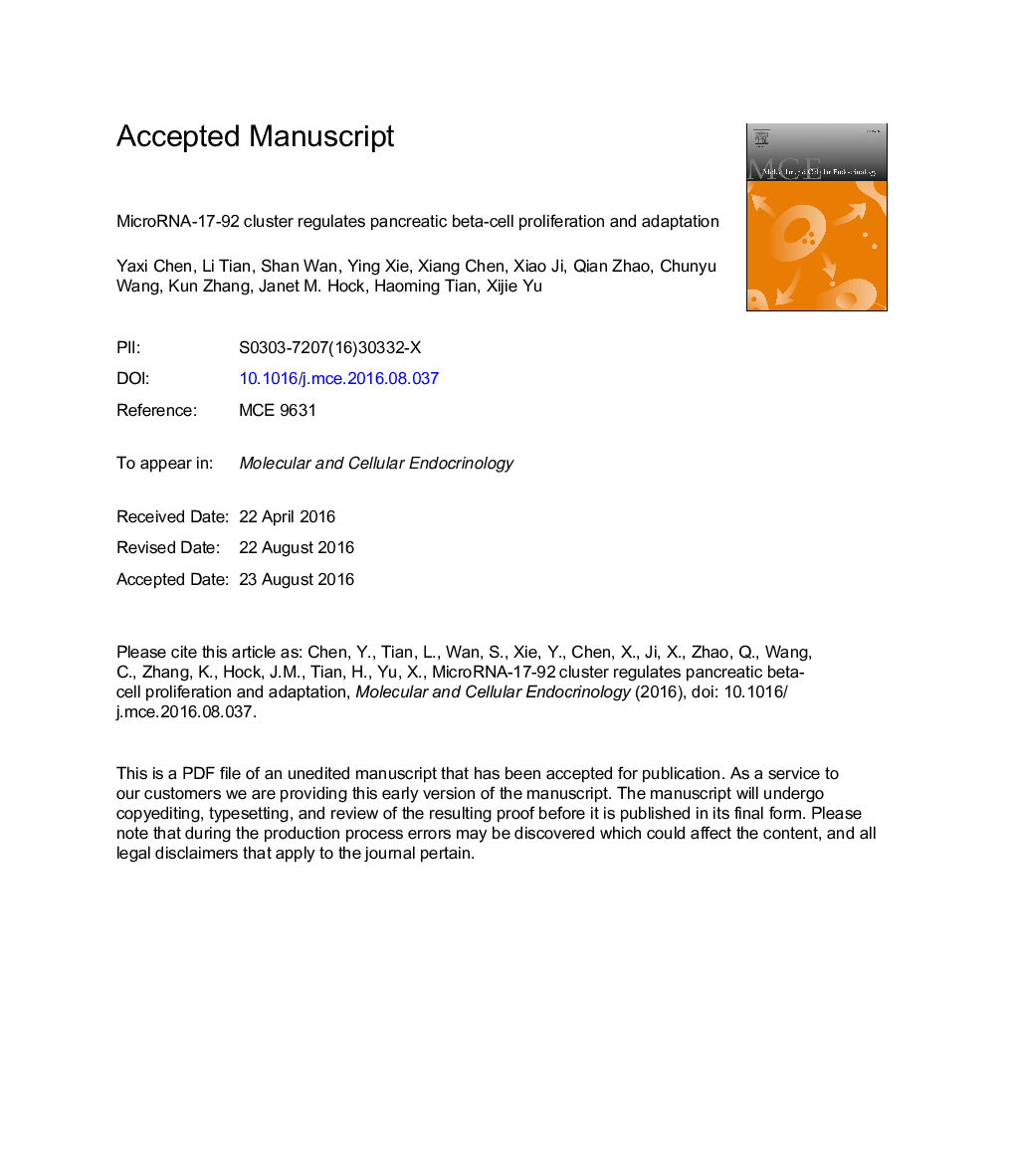| Article ID | Journal | Published Year | Pages | File Type |
|---|---|---|---|---|
| 8476688 | Molecular and Cellular Endocrinology | 2016 | 40 Pages |
Abstract
MiR-17-92 cluster contributes to the regulation of mammalian development, aging and tumorigenesis. The functional roles of miR-17-92 in pancreatic beta-cells are largely unknown. In this study, we found that conditional deletion of miR-17-92 in mouse pancreatic beta-cells (miR-17-92βKO) significantly reduces glucose tolerance and the first phase of insulin secretion, despite normal ad libitum fed and fasting glucose levels. Proliferation is down-regulated in pancreatic beta-cells after deleting miR-17-92. MiR-17-92βKO mice show higher phosphatase and tensin homologue (PTEN) and lower phosphorylated AKT in islets. Under high fat diet challenge for 16 weeks, miR-17-92βKO mice lose compensation and exhibit higher glucose levels, and lower insulin secretion. Collectively, these data suggest that miR-17-92 is a critical contributor to molecular mechanisms regulating glucose-stimulated insulin secretion and pancreatic beta-cell adaptation under metabolic stress.
Related Topics
Life Sciences
Biochemistry, Genetics and Molecular Biology
Cell Biology
Authors
Yaxi Chen, Li Tian, Shan Wan, Ying Xie, Xiang Chen, Xiao Ji, Qian Zhao, Chunyu Wang, Kun Zhang, Janet M. Hock, Haoming Tian, Xijie Yu,
